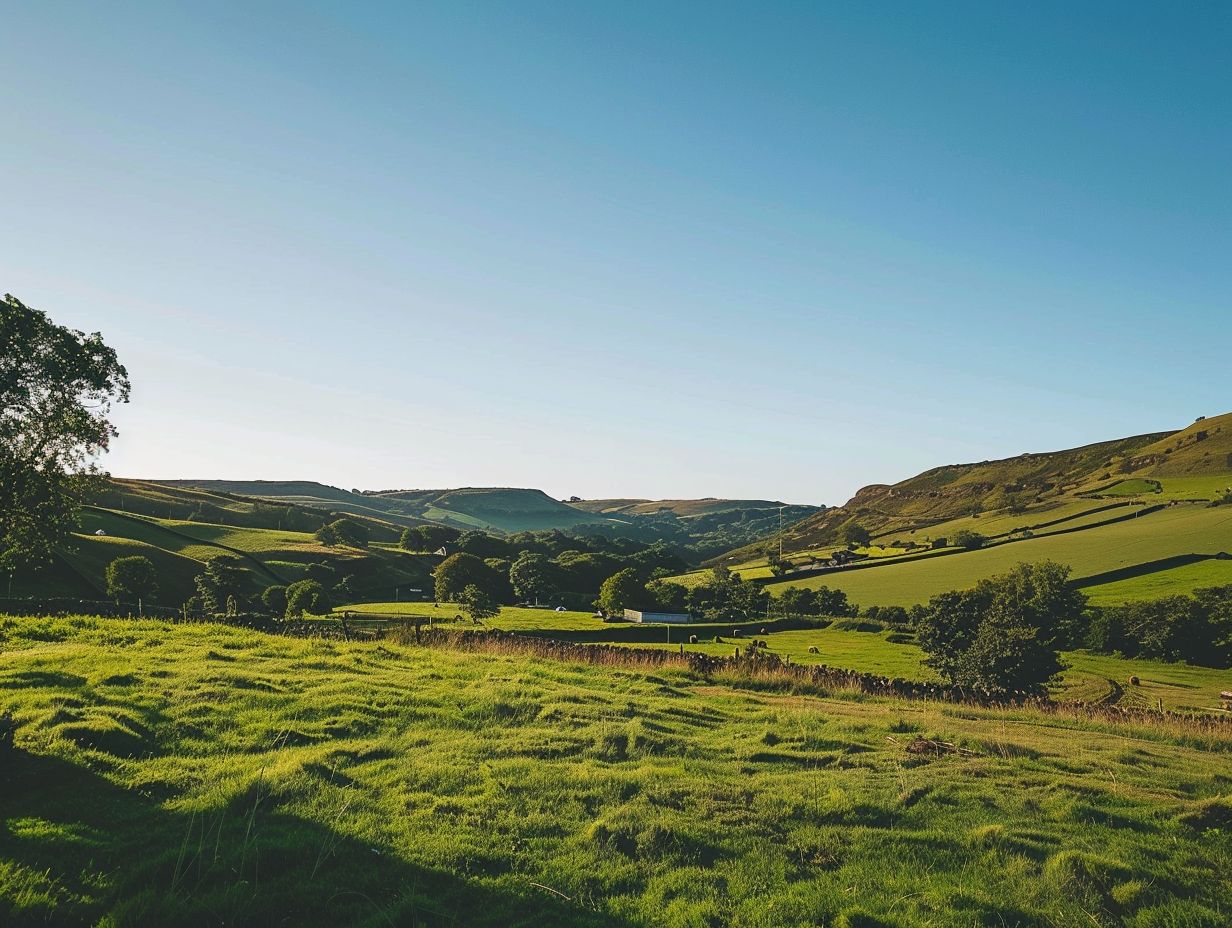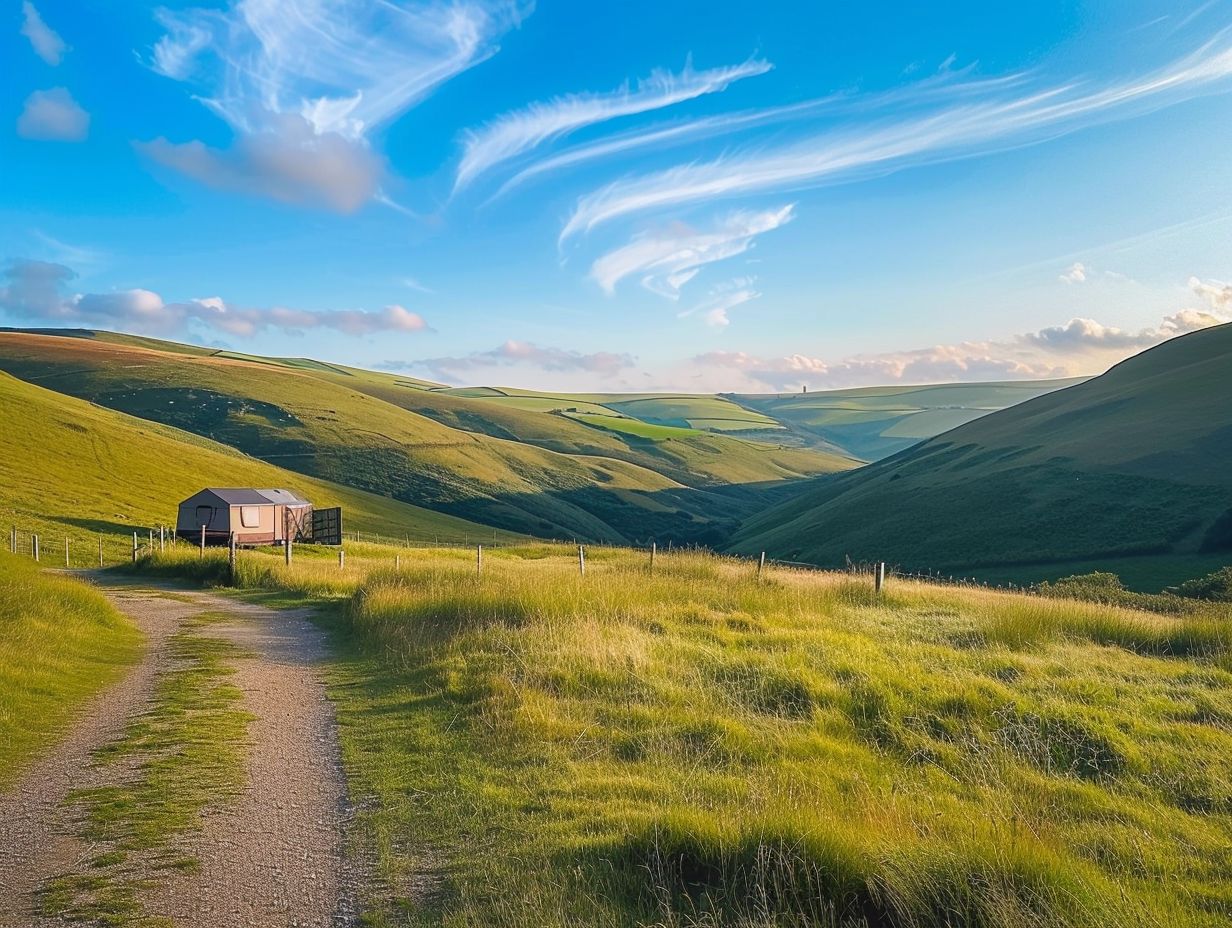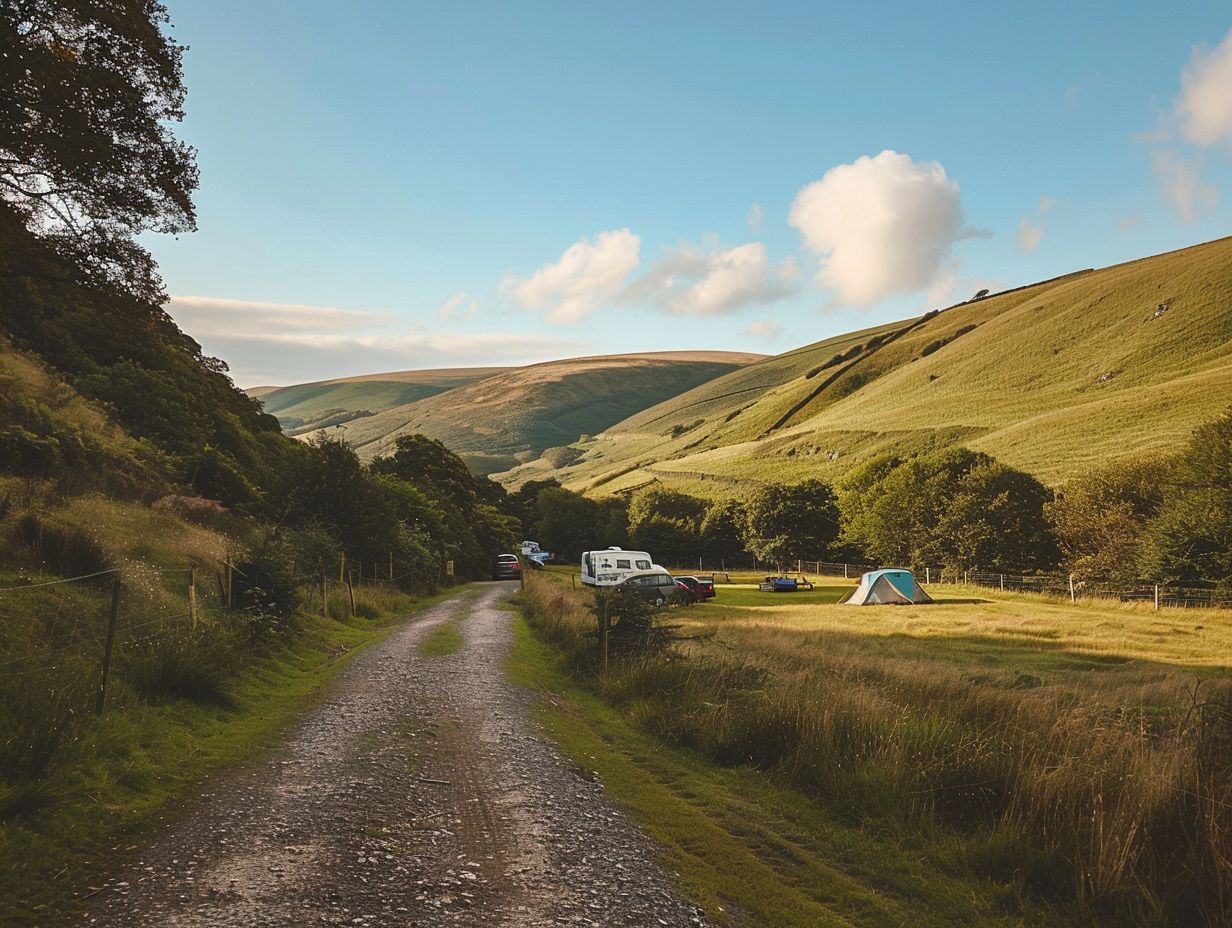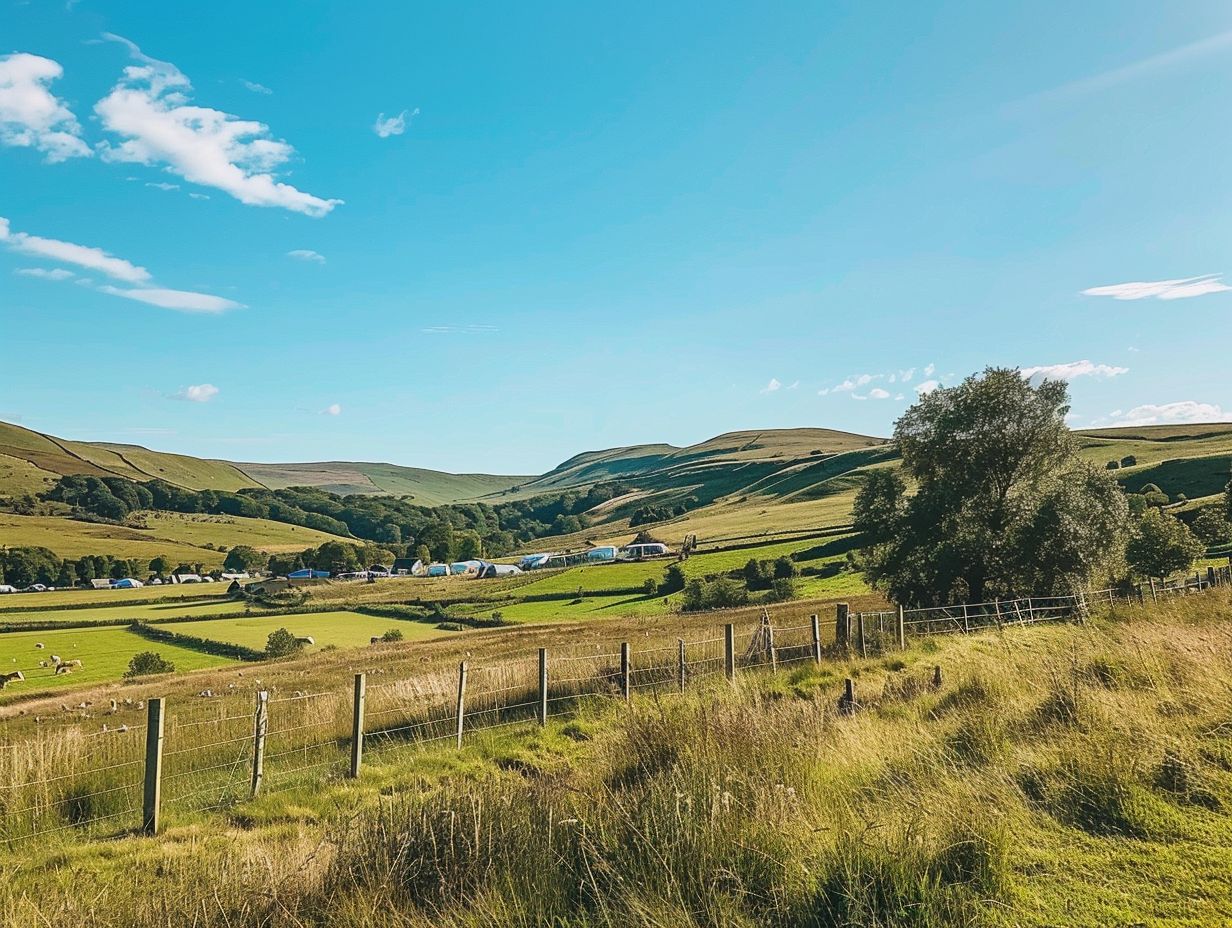Have you ever heard of lost villages? These mysterious and abandoned settlements hold a fascinating history waiting to be explored.
In this exploration, you will uncover the history of lost villages in the UK, delve into the causes of their abandonment, and be guided on how to find and access these hidden gems near campsites.
We will also discuss the efforts being made to preserve and protect these lost villages, emphasizing their significance in maintaining our cultural heritage. You are invited to join us on this journey of discovery as we uncover the secrets of the UK’s lost villages.
Key Takeaways:

- Discover the untold history and secrets of the UK’s lost villages and their abandoned remains near campsites.
- Uncover the causes of abandonment and efforts to preserve these forgotten settlements for future generations.
- Immerse yourself in the beauty and mystery of these lost villages while being mindful of their delicate preservation and protection.
What are Lost Villages?
Lost Villages refer to settlements that have been deserted or abandoned over the centuries, leaving behind traces of England’s historical past.
These villages, mentioned in records like the Domesday Book, showcase the shift in population and land ownership in various eras, from Anglo-Saxon times to the Middle Ages.
These villages, reflecting the ebb and flow of human civilisation, often fell into decline due to factors such as changes in agricultural practices, epidemics or economic shifts. The Lost Villages serve as poignant reminders of the dynamic landscapes of England’s past, where communities flourished and declined, leaving behind ruins and ghostly traces of what once was.
The presence of these deserted settlements in historical records like the Domesday Book allows historians to trace the evolution of settlement patterns and understand the impact of broader societal changes on local communities.
History of Lost Villages in the UK
The history of Lost Villages in the UK dates back centuries, reflecting the evolution of settlement patterns, land ownership, and population dynamics. From the Anglo-Saxon era to the Middle Ages, many villages vanished from the landscape, leaving behind a historical tapestry of England’s past.
Causes of Abandonment
The abandonment of villages was often influenced by a variety of factors, such as changes in farming practices, coastal erosion, flooding, and the conversion of farmland.
Throughout the centuries, these settlements vanished as residences were either swept away by sand or submerged by the sea, permanently changing the landscape.
Communities grappled with adjusting to new agricultural techniques and contended with the relentless advance of the sea, compelling residents to vacate their ancestral residences.
Faced with the unpredictable impact of natural calamities like hurricanes and tsunamis, numerous villages fell victim to the devastating force of these catastrophic occurrences, resulting in large-scale evacuations and ultimately the abandonment of previously thriving communities.
Exploring Lost Villages Near Campsites

Exploring Lost Villages near campsites offers you a distinctive opportunity to delve into the remnants of abandoned settlements along the picturesque coasts of England. From North Yorkshire to Lincolnshire, these expeditions provide insights into the lives of past inhabitants, with dilapidated houses and traces of former populations dotting the landscape.
Top Lost Villages to Visit
When considering Lost Villages to visit in England, there are several notable sites that provide a glimpse into the past. From ancient ruins to historic landmarks, these abandoned villages offer a rich tapestry of history waiting to be explored by tourists and history enthusiasts alike.
One particularly intriguing Lost Village is Wharram Percy in Yorkshire, renowned for its well-preserved medieval ruins and archaeological remains. Visitors have the opportunity to stroll through the deserted streets, envisioning life as it once existed in this uninhabited settlement.
In Cornwall, the ghost village of Tyneham serves as a poignant reminder of its evacuation during World War II, frozen in time with its vacant houses and school.
These Lost Villages not only evoke a sense of mystery and nostalgia but also represent valuable cultural and historical treasures for those interested in uncovering England’s hidden past.
How to Find and Access Lost Villages
Discovering and accessing Lost Villages requires a combination of historical research, exploration, and at times, the assistance of local maps or experts.
Revealing these hidden treasures from England’s past entails diving into historical records, identifying precise locations, and embarking on a journey of exploration to unveil the mysteries of abandoned settlements.
By immersing yourself in the local history of England, you can develop a deeper admiration for these spectral remnants of bygone periods. Tracing the paths of those who once resided in these forgotten communities establishes a tangible link to history.
Exploring the stories of these deserted villages offers a captivating glimpse into the lives and narratives of the individuals who once inhabited them. The excitement of discovering a forsaken settlement, shrouded in mystery, introduces an adventurous aspect to the exploration process.
Preserving and Protecting Lost Villages
Preserving and protecting Lost Villages is crucial for safeguarding England’s historical heritage for future generations. By engaging in conservation efforts, documenting them in the National Monument record, and raising awareness about the significance of these abandoned settlements, steps can be taken to ensure that their legacy endures.
Efforts to Preserve and Restore Lost Villages

Efforts to preserve and restore Lost Villages in England require a dedicated focus on conservation, restoration of historic sites, and raising awareness about the cultural significance of these abandoned settlements. Organisations, such as the Lost Villages of England, play a vital role in these initiatives.
They collaborate with historians, archaeologists, and local communities to execute various conservation projects, with the goal of safeguarding the unique history and heritage of deserted villages.
These endeavours encompass not only the physical restoration of buildings and structures but also the documentation of stories and traditions associated with these lost communities. By shedding light on the past, these organisations aim to ensure that the legacy of these villages is retained for future generations to appreciate and learn from.
Importance of Protecting Lost Villages
The importance of protecting Lost Villages lies in preserving England’s cultural heritage, providing valuable insights for historians, archaeologists, and future generations.
These abandoned settlements offer a window into the past, showcasing the evolving landscape and societal changes that have shaped the country over the centuries.
By safeguarding these remnants of bygone eras, professionals in historical research can uncover vital clues about ancient civilisations, daily life, and architectural practices. Lost Villages serve as living records of England’s history, helping to piece together the puzzle of how communities thrived and interacted in different periods.
The preservation of these sites not only maintains their cultural significance but also ensures that the knowledge and lessons they hold can be passed down to generations to come.
Frequently Asked Questions
What are some examples of Lost Villages near Campsites in the UK?
Some examples of Lost Villages near Campsites in the UK include Imber in Wiltshire, Tyneham in Dorset, and Hallsands in Devon.
How can I discover these Lost Villages near Campsites?

You can discover these Lost Villages near Campsites by doing research online, joining local historical societies, or even by talking to locals in the area.
Why were these villages abandoned?
These villages were abandoned for various reasons such as natural disasters, economic decline, and government action. For example, Imber was abandoned due to being used as a training ground during World War II.
Can I visit these Lost Villages near Campsites?
Yes, many of these Lost Villages are open to visitors and have become popular tourist attractions. However, some may have restricted access due to safety concerns or private ownership.
Are there any guided tours available for these Lost Villages near Campsites?
Yes, there are guided tours available for some of these Lost Villages. You can check with local tour companies or historical societies for more information.
What can I expect to see at these Lost Villages near Campsites?
You can expect to see remnants of old buildings, churches, and other structures, as well as signs and information about the history and significance of the village. Some may also have museums or exhibitions showcasing the village’s past.



